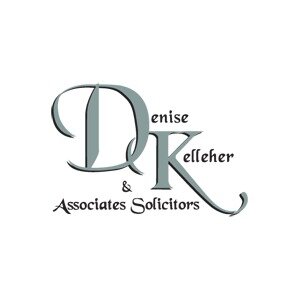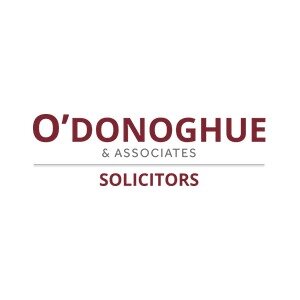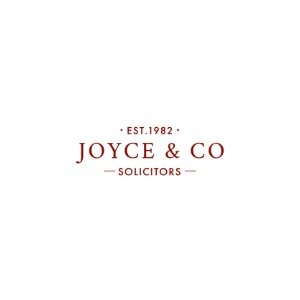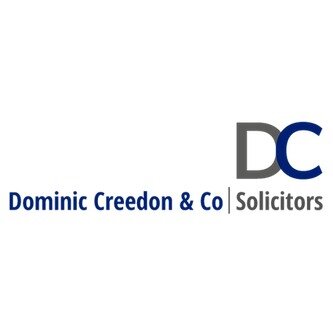Best Child Abuse Lawyers in Cork
Share your needs with us, get contacted by law firms.
Free. Takes 2 min.
Free Guide to Hiring a Family Lawyer
List of the best lawyers in Cork, Ireland
About Child Abuse Law in Cork, Ireland
Child abuse is a grave concern in Cork, Ireland, encompassing physical, emotional, and sexual harm, neglect, or any treatment that harms a child’s well-being. The legal framework in Cork aims to protect children from abuse and provides mechanisms for preventing, reporting, and addressing such issues. Child abuse cases are taken very seriously by local authorities, and numerous laws and policies exist to ensure the safety and security of children.
Why You May Need a Lawyer
There are several situations where you might require legal assistance in child abuse cases:
- Reporting suspected child abuse and navigating the legal complexities
- Defending against false allegations of child abuse
- Seeking custody or protection orders in abusive family situations
- Understanding your rights and obligations when accused of child abuse
- Representing children in court proceedings to ensure their interests are safeguarded
- Negotiating with social services and other governmental bodies involved in child protection.
Local Laws Overview
In Cork, Ireland, various laws govern child protection and abuse, including:
- The Child Care Act 1991: Provides the legal basis for the state to intervene in families to protect children at risk.
- The Children First Act 2015: Mandates reporting of child abuse and neglect and provides guidelines for organizations working with children.
- The Criminal Justice (Withholding of Information on Offences Against Children and Vulnerable Persons) Act 2012: Makes it a criminal offense to withhold information about serious offenses against children and vulnerable persons.
- The Domestic Violence Act 2018: Offers protective measures for victims of domestic violence, including children who are witnesses or victims of abuse.
Frequently Asked Questions
What constitutes child abuse under Irish law?
Child abuse includes physical, emotional, and sexual abuse, as well as neglect. It can be any action or failure to act that results in harm, potential harm, or threat of harm to a child.
Who should I contact if I suspect child abuse?
You should contact Tusla (the Child and Family Agency) or your local Gardaí (police) immediately to report suspected child abuse.
What is the role of Tusla in child abuse cases?
Tusla is responsible for assessing risks and ensuring the safety and well-being of children. They provide support services, conduct investigations, and, if necessary, bring cases to court to protect children.
How does the legal process work for child abuse cases?
The process typically involves reporting the abuse, an initial assessment by Tusla, possible involvement of the Gardaí, and, if necessary, legal proceedings to protect the child and prosecute the offender.
What legal protections are available for victims of child abuse?
Protections include emergency care orders, interim care orders, supervision orders, and protection orders under the Child Care Act 1991 and Domestic Violence Act 2018.
Can a child be removed from a home if abuse is suspected?
Yes, under the Child Care Act 1991, children can be removed from their home by Tusla or the Gardaí if they are in immediate danger or if there is substantial risk to their welfare.
What is the Children First Act 2015?
The Children First Act 2015 sets down requirements for reporting child harm, introducing mandatory reporting for certain professionals, and emphasizes safeguarding in organizations that work with children.
What happens if I'm falsely accused of child abuse?
Being falsely accused is serious and requires immediate legal advice. A lawyer can help you understand your rights, gather evidence, and navigate legal defenses to clear your name.
How can I help a child who is being abused?
Report your concerns to Tusla or the Gardaí, provide support to the child within safe boundaries, and encourage the child to speak with trusted adults or professionals.
What support is available for children affected by abuse?
A variety of support services are accessible, including counseling, therapy, and support groups provided by Tusla, NGOs, and other child protection organizations.
Additional Resources
- Tusla (Child and Family Agency): Provides child protection and welfare services across Ireland.
- Childline: Offers a free helpline for children and young people in distress.
- Barnardos: A children’s charity offering support to children and families dealing with abuse.
- The Ombudsman for Children’s Office: Advocates for the rights and welfare of children in Ireland.
Next Steps
If you need legal assistance in a child abuse case, consider the following steps:
- Contact a solicitor who specializes in family law or child protection law.
- Gather all relevant documentation and evidence related to the case.
- Report the abuse to the appropriate authorities, such as Tusla or the Gardaí.
- Follow professional legal advice for any court proceedings or further actions.
Finding the right legal help is crucial to navigating the complexities of child abuse cases and ensuring the safety and well-being of the child involved.
Lawzana helps you find the best lawyers and law firms in Cork through a curated and pre-screened list of qualified legal professionals. Our platform offers rankings and detailed profiles of attorneys and law firms, allowing you to compare based on practice areas, including Child Abuse, experience, and client feedback.
Each profile includes a description of the firm's areas of practice, client reviews, team members and partners, year of establishment, spoken languages, office locations, contact information, social media presence, and any published articles or resources. Most firms on our platform speak English and are experienced in both local and international legal matters.
Get a quote from top-rated law firms in Cork, Ireland — quickly, securely, and without unnecessary hassle.
Disclaimer:
The information provided on this page is for general informational purposes only and does not constitute legal advice. While we strive to ensure the accuracy and relevance of the content, legal information may change over time, and interpretations of the law can vary. You should always consult with a qualified legal professional for advice specific to your situation.
We disclaim all liability for actions taken or not taken based on the content of this page. If you believe any information is incorrect or outdated, please contact us, and we will review and update it where appropriate.














